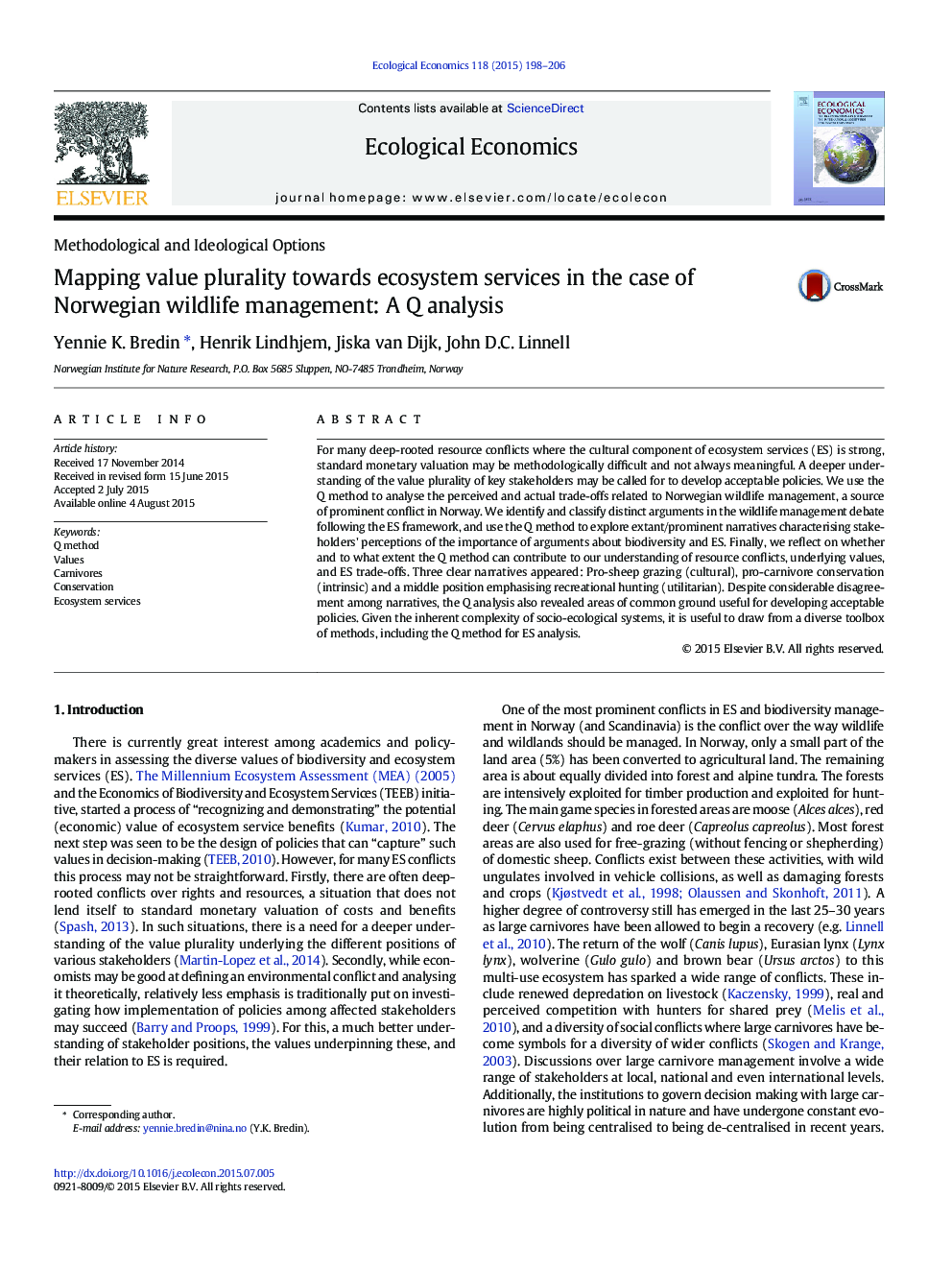| Article ID | Journal | Published Year | Pages | File Type |
|---|---|---|---|---|
| 5049378 | Ecological Economics | 2015 | 9 Pages |
â¢The cultural component is important for ecosystem services from Norwegian wildlife management.â¢The Q method may be useful for analysing deep-rooted ecosystem service conflicts.â¢Respondents grouped into three narratives; cultural, intrinsic and utilitarian.â¢There was common ground, but issues related to sheep and wolves were divisive.
For many deep-rooted resource conflicts where the cultural component of ecosystem services (ES) is strong, standard monetary valuation may be methodologically difficult and not always meaningful. A deeper understanding of the value plurality of key stakeholders may be called for to develop acceptable policies. We use the Q method to analyse the perceived and actual trade-offs related to Norwegian wildlife management, a source of prominent conflict in Norway. We identify and classify distinct arguments in the wildlife management debate following the ES framework, and use the Q method to explore extant/prominent narratives characterising stakeholders' perceptions of the importance of arguments about biodiversity and ES. Finally, we reflect on whether and to what extent the Q method can contribute to our understanding of resource conflicts, underlying values, and ES trade-offs. Three clear narratives appeared: Pro-sheep grazing (cultural), pro-carnivore conservation (intrinsic) and a middle position emphasising recreational hunting (utilitarian). Despite considerable disagreement among narratives, the Q analysis also revealed areas of common ground useful for developing acceptable policies. Given the inherent complexity of socio-ecological systems, it is useful to draw from a diverse toolbox of methods, including the Q method for ES analysis.
